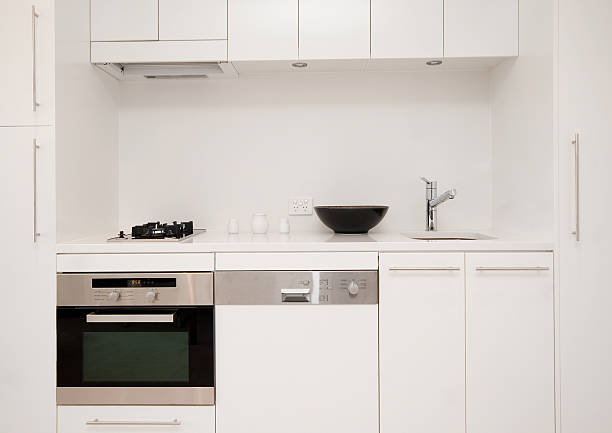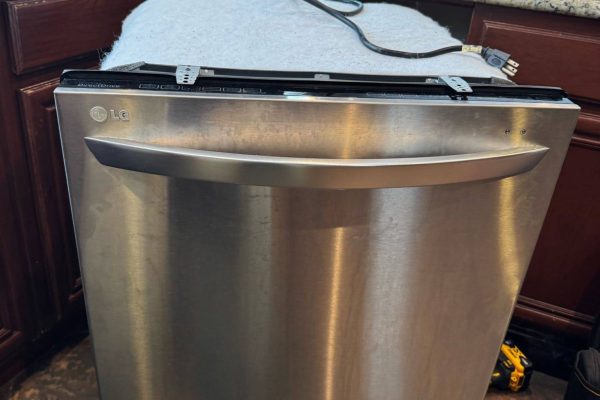When it comes to efficient dishwasher operation, many factors play a crucial role, including water hardness level. Water hardness refers to the concentration of minerals, primarily calcium and magnesium, dissolved in water. While these minerals are generally harmless, they can affect the performance of household appliances, particularly dishwashers. In this article, we’ll explore the importance of properly adjusting the water hardness level for efficient dishwasher operation and how it can impact cleaning results and the lifespan of your appliance.
Understanding Water Hardness
Before delving into the importance of adjusting water hardness for dishwashers, it’s essential to understand what water hardness is and how it is measured. Water hardness is typically measured in grains per gallon (GPG) or parts per million (ppm) of calcium carbonate equivalents (CaCO3). The classification of water hardness is as follows:
– Soft water: 0-60 ppm or 0-3.5 GPG
– Moderately hard water: 61-120 ppm or 3.5-7 GPG
– Hard water: 121-180 ppm or 7-10.5 GPG
– Very hard water: Above 180 ppm or 10.5 GPG and higher
The Impact of Water Hardness on Dishwasher Performance
Water hardness can significantly impact dishwasher performance in several ways:
Cleaning Efficiency: Hard water contains higher levels of minerals, which can interfere with the effectiveness of dishwasher detergents and result in poor cleaning performance. The minerals in hard water can combine with detergent ingredients, forming insoluble soap scum that leaves behind spots and residues on dishes, glassware, and utensils.
Scale Buildup: The minerals in hard water can also accumulate inside the dishwasher, forming scale deposits on the heating element, spray arms, and interior surfaces. Scale buildup can reduce water flow and heat transfer efficiency, leading to longer wash cycles, increased energy consumption, and potential damage to the dishwasher’s components over time.
Spotting and Clouding: Hard water can cause spotting, streaking, and clouding on glassware and dishes due to the presence of dissolved minerals. These mineral deposits can be difficult to remove and may require additional rinsing or handwashing to achieve a clean and sparkling finish.
Efficiency and Longevity: Operating a dishwasher with hard water can reduce its efficiency and longevity due to increased energy consumption, longer wash cycles, and the need for more frequent cleaning and maintenance. Over time, scale buildup can lead to clogs, leaks, and malfunctions, necessitating costly repairs or replacement of the appliance.
Adjusting Water Hardness for Dishwasher Operation
To optimize dishwasher performance and efficiency, it’s essential to adjust the water hardness level accordingly:
Water Softeners: Installing a water softener is one of the most effective ways to address hard water issues in the home. Water softeners work by removing calcium and magnesium ions from the water through a process called ion exchange, replacing them with sodium or potassium ions. Softened water is gentler on appliances, improves cleaning efficiency, and reduces the risk of scale buildup.
Adjusting Detergent Usage: In areas with moderately hard or hard water, it may be necessary to adjust the amount of dishwasher detergent used to achieve optimal cleaning results. Using too much detergent can lead to excessive sudsing and soap scum buildup, while using too little may result in poor cleaning performance.
Rinse Aid: Using a rinse aid in conjunction with dishwasher detergent can help prevent spotting and streaking on dishes and glassware. Rinse aids contain surfactants that reduce the surface tension of water, allowing it to flow off dishes more easily and preventing mineral deposits from adhering to surfaces.
Regular Maintenance: Regardless of water hardness level, regular maintenance is essential for keeping your dishwasher running smoothly and efficiently. This includes cleaning the filter, spray arms, and interior surfaces regularly to remove any accumulated debris or scale buildup. Additionally, running a cleaning cycle with a dishwasher cleaner or vinegar solution periodically can help remove mineral deposits and keep the appliance functioning optimally.
By properly adjusting the water hardness level for efficient dishwasher operation, you can improve cleaning performance, reduce energy consumption, and prolong the lifespan of your appliance. Whether through the use of a water softener, adjusting detergent usage, or incorporating rinse aid into your cleaning routine, addressing hard water issues can make a significant difference in the effectiveness and longevity of your dishwasher.
Our services are your reliable way to solve problems with household appliances! If your appliances require repair, don’t worry – contact Oceanside Appliance Service Center and we will help you forget about any inconvenience.
Our company has many years of experience in repairing household appliances of various brands and models. Our team of highly qualified technicians has deep knowledge and experience in working with refrigerators, washing machines, dryers, dishwashers, stoves, ovens and other devices.
We guarantee a professional approach to each task and the use of only original spare parts for repairs. Restoring your household appliances to optimal condition is our main goal.
Contact us


